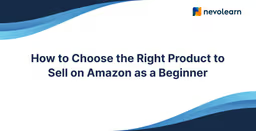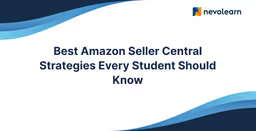Holiday Special | Enjoy 20% OFF – Celebrate the Season with Big Savings!Holiday Special | 20% OFF!
In 2025, Agile methodologies continue to dominate the landscape of project management and team collaboration. As organizations increasingly adopt Agile frameworks to navigate dynamic business environments, the choice of tools plays a pivotal role in ensuring project success. Agile tools are no longer limited to task management; they now support end-to-end processes, from sprint planning and backlog grooming to deployment and performance monitoring. Building upon insights from KnowledgeHut's comprehensive analysis of top Agile tools, this advanced guide curates essential tools that significantly enhance productivity, foster innovation, and enable seamless collaboration for Agile teams.
Why Should We Use Agile Tools?
Agile tools are essential for modern project management as they enable teams to work more efficiently, adapt to changing requirements, and deliver high-quality results. In 2025, these tools play an even more critical role by supporting complex Agile methodologies, ensuring transparent communication, and fostering collaboration across distributed teams. Agile tools provide real-time insights, automated workflows, and predictive analytics that help teams identify risks early, optimize resource allocation, and achieve faster time-to-market. They not only enhance productivity but also ensure that projects are aligned with business goals, ultimately driving innovation and continuous improvement.
The Impact of AI and Machine Learning on Agile Tools in 2025
AI and machine learning are revolutionizing Agile tools in 2025, bringing intelligence and automation to project management processes. AI-powered Agile tools can analyze historical project data to predict potential risks, estimate delivery timelines, and recommend optimal resource allocations. This helps teams make informed decisions faster, improving sprint planning and backlog prioritization.
Machine learning algorithms continuously learn from team performance metrics, providing personalized insights and adaptive workflows that evolve with project demands. For instance, AI-driven sprint retrospectives highlight areas of improvement by analyzing team performance patterns, while machine learning enhances predictive analytics, offering forecasts for project outcomes.
Moreover, AI integrates with Agile tools to automate repetitive tasks, such as updating status reports, assigning tasks based on team member availability, and tracking progress. Natural language processing (NLP) features enable intelligent chatbots within communication platforms like Slack, offering instant access to project updates, documentation, and issue tracking.
AI also improves DevOps practices by optimizing CI/CD pipelines, reducing code review times through AI-powered code suggestions, and enhancing security via automated vulnerability detection. As AI and machine learning become more embedded in Agile tools, they are transforming how teams collaborate, plan, and deliver value, ensuring higher productivity and agility in response to evolving market demands.
Essential Agile Tools for Boosting Team Performance in 2025
1. Jira Software
Jira Software, developed by Atlassian, remains a cornerstone for Agile project management. Its robust support for Scrum, Kanban, and ScrumBan frameworks allows teams to manage complex projects with ease. Jira’s customizable workflows, real-time reporting capabilities, and advanced backlog management make it indispensable for tracking project progress. The tool's extensive integration ecosystem with platforms like Bitbucket, Confluence, and Slack further enhances its utility. In 2025, Jira's AI-powered forecasting and predictive analytics provide actionable insights, enabling teams to identify potential bottlenecks and improve sprint velocity proactively.
2. Trello
Trello utilizes a visual, card-based system representing tasks and workflows, making it ideal for teams seeking simplicity without compromising flexibility. Its intuitive interface allows Agile teams to implement Kanban boards for task visualization and process streamlining. With Butler automation, Trello automates repetitive tasks, enhancing efficiency. In 2025, Trello’s advanced integrations with Jira, Slack, and Google Workspace have further streamlined cross-functional workflows, making it suitable for both small teams and large organizations.
3. Asana
Asana excels in task management and team collaboration, offering features like timelines, custom fields, and workload management. It allows teams to set clear priorities and deadlines, ensuring alignment and accountability. In 2025, Asana's AI-enhanced features, such as predictive task due dates and smart project templates, help organizations anticipate project risks and manage resources more effectively. Asana's integration with Slack, Zoom, and Salesforce enables a unified workflow that drives Agile success.
4. Monday.com
Monday.com provides a highly customizable platform that adapts to various Agile workflows. Its visual dashboards, automations, and time-tracking capabilities assist teams in tracking progress and optimizing processes. Monday.com’s WorkOS solution now includes advanced features such as AI-driven performance insights and workflow recommendations, significantly improving team productivity. Its seamless integration with tools like Jira, GitHub, and Microsoft Teams makes it an indispensable choice for organizations adopting Scaled Agile Framework (SAFe) and Disciplined Agile Delivery (DAD) methodologies.
5. Azure DevOps
For organizations deeply integrated with Microsoft ecosystems, Azure DevOps provides a comprehensive suite of development tools supporting Agile practices. It facilitates continuous integration and delivery (CI/CD), ensuring seamless collaboration between development and operations teams. Azure DevOps offers Agile planning tools, Kanban boards, backlog management, and robust analytics. In 2025, the platform’s AI-powered test automation and real-time performance monitoring ensure high-quality software delivery, aligning with Agile DevSecOps practices.
6. Slack
Effective communication is vital for Agile teams, and Slack provides a platform for real-time messaging, file sharing, and integration with various Agile tools. Its channel-based organization helps maintain focused and transparent discussions. In 2025, Slack's advanced features, including Huddles for quick syncs, Slack Canvas for collaborative documentation, and deeper integration with Jira, Trello, and Asana, make it indispensable for Agile team collaboration. Workflow Builder allows teams to automate routine processes, enhancing productivity and minimizing operational friction.
7. Miro
Miro serves as a digital whiteboard, enabling remote teams to collaborate visually. It’s particularly useful for brainstorming sessions, sprint planning, user story mapping, and retrospective meetings, fostering creativity and engagement. In 2025, Miro’s AI-driven templates and real-time collaboration features have transformed the way distributed Agile teams conduct Design Thinking workshops and Agile ceremonies. Its integration with Jira, Confluence, and Microsoft Teams ensures a connected Agile ecosystem that drives innovation.
8. GitLab
GitLab offers a comprehensive DevOps platform with built-in support for Agile project management. Its features include issue tracking, code review, continuous integration, and security scanning, promoting collaboration and efficiency throughout the software development lifecycle (SDLC). In 2025, GitLab's predictive analytics and AI-powered code suggestions enhance development speed and code quality. Its Auto DevOps feature simplifies deployment pipelines, making GitLab ideal for Agile software delivery in both startups and large enterprises.
9. VersionOne
Specifically designed for scaling Agile across enterprises, VersionOne offers end-to-end visibility and alignment. It supports multiple Agile methodologies, including Scrum, Kanban, XP, and SAFe. VersionOne's robust portfolio management tools ensure that strategic objectives align with Agile initiatives. In 2025, enhancements in value stream management and real-time reporting have made VersionOne a top choice for large organizations seeking to optimize Agile transformations at scale.
10. Confluence
Confluence, another powerful tool from Atlassian, acts as a collaborative workspace where teams can create, share, and manage project documentation seamlessly. Its tight integration with Jira enhances transparency and knowledge sharing, which are essential components of Agile practices. In 2025, Confluence’s smart content recommendations, AI-powered search, and improved collaborative editing features enable faster decision-making and knowledge retention, thereby improving team performance and project outcomes.
11. ClickUp
ClickUp is an all-in-one productivity platform that supports Agile workflows through features like customizable views, Gantt charts, Kanban boards, and time tracking. ClickUp's flexibility allows teams to adapt the tool to various Agile frameworks, including Scrum and Kanban. In 2025, its AI-powered automation, smart notifications, and enhanced goal-tracking capabilities have made it a popular choice for Agile teams focused on optimizing productivity and aligning project deliverables with strategic goals.
12. Targetprocess
Targetprocess is designed for Agile portfolio and project management, making it ideal for enterprises adopting frameworks like SAFe, LeSS, and Nexus. It provides visualization tools for portfolios, programs, and teams, ensuring alignment between business objectives and Agile initiatives. In 2025, Targetprocess will introduce AI-powered portfolio insights and real-time OKR tracking, helping organizations scale Agile practices across multiple teams and departments efficiently.
13. Zoho Sprints
Zoho Sprints is a flexible Agile project management tool that supports Scrum teams with features like customizable Scrum boards, epic management, and velocity charts. Its simple UI and robust reporting tools make it suitable for small and medium-sized Agile teams. In 2025, Zoho Sprints’ integration with Zoho Analytics, Slack, and GitHub, along with AI-enhanced sprint forecasting, help teams stay on top of deliverables and optimize sprint planning processes.
14. Rally (formerly CA Agile Central)
Rally provides robust Agile project management solutions that support Lean-Agile development at scale. It offers real-time progress tracking, iteration planning, and release management. In 2025, Rally's predictive analytics, risk management features, and value stream visualization have enhanced its reputation as a go-to tool for enterprises pursuing large-scale Agile transformations.
15. Taiga
Taiga is a project management tool designed for Scrum and Kanban teams. It offers backlog management, customizable workflows, and sprint tracking. Taiga's open-source nature makes it ideal for teams seeking high customizability. In 2025, Taiga's AI-assisted sprint planning and enhanced integration with popular DevOps tools like GitHub and Bitbucket have bolstered its adoption among Agile software development teams.
The Strategic Role of Agile Tools in 2025
The evolving landscape of Agile practices in 2025 emphasizes the need for integrated ecosystems, AI-driven insights, and customizable workflows. Selecting the right combination of Agile tools can significantly impact the success of Agile projects. By leveraging advanced features such as predictive analytics, automated workflows, and seamless third-party integrations, teams can enhance collaboration, streamline workflows, and boost productivity.
Moreover, as remote and hybrid work environments become the norm, tools that support real-time communication, visual collaboration, and distributed Agile practices are more critical than ever. The right Agile toolset doesn’t just improve task management—it transforms how teams innovate, adapt, and deliver value in an increasingly competitive market.
Conclusion
In conclusion, the Agile tools listed here—when strategically integrated—can empower teams to stay adaptive, aligned, and efficient, ensuring long-term success in 2025 and beyond. The integration of AI-powered features, customizable workflows, and seamless collaboration platforms provides Agile teams with the ability to respond rapidly to changing market demands. With the proper combination of these tools, organizations can not only streamline their project management processes but also create a robust framework that drives continuous innovation and sustainable growth. Agile tools in 2025 are not just enablers of productivity; they are catalysts for transformation, empowering businesses to thrive in a dynamic and competitive landscape.
Want to Level Up Your Skills?
EXPLORE BY CATEGORY
You're All Caught Up!
Check back later for new content
No Blogs available Agile





